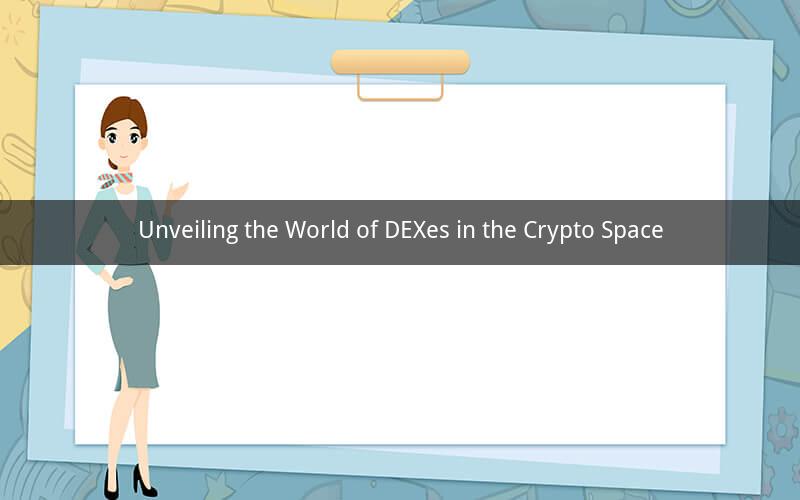
In the rapidly evolving crypto landscape, decentralized exchanges (DEXes) have emerged as a crucial component of the ecosystem. Unlike traditional centralized exchanges (CEXes), DEXes operate on a decentralized network, providing users with greater control over their assets and a more transparent trading experience. This article delves into the intricacies of DEXes, exploring their functioning, benefits, and the crypto tokens that power them.
What is a DEX?
A decentralized exchange is a platform that facilitates peer-to-peer (P2P) cryptocurrency trading without the need for a centralized authority. Users can trade cryptocurrencies directly with one another, without intermediaries like banks or financial institutions. This decentralized nature ensures that users maintain full control over their assets and eliminate the risk of a single point of failure.
How do DEXes work?
DEXes operate on blockchain technology, primarily using smart contracts to facilitate transactions. When a user wants to trade a cryptocurrency, they place an order on the platform, specifying the amount of crypto they want to buy or sell and the price at which they are willing to trade. The smart contracts automatically match buyers and sellers, executing the trade and updating the blockchain accordingly.
Benefits of DEXes
1. Enhanced Security: Since DEXes operate on a decentralized network, they are less susceptible to hacking and cyber attacks compared to CEXes. Users' private keys are not stored on a central server, reducing the risk of theft.
2. Privacy: DEXes provide users with greater privacy, as they do not require personal information such as government-issued IDs or bank details. This makes them an attractive option for those who value their anonymity.
3. Control over Assets: With DEXes, users have full control over their assets, as they can store their cryptocurrencies in their own wallets. This eliminates the risk of losing assets due to a centralized exchange's failure or security breach.
4. Lower Fees: DEXes typically charge lower trading fees compared to CEXes. This is because they do not have to pay for the infrastructure and personnel required to maintain a centralized platform.
5. Accessibility: DEXes can be accessed from anywhere in the world, as long as the user has an internet connection. This makes them an attractive option for those who are unable to access traditional financial services.
Popular DEX Tokens
1. Uniswap (UNI): Uniswap is one of the most popular DEXes, known for its automated market-making (AMM) mechanism. The UNI token is used to govern the platform and provide liquidity to its pools.
2. SushiSwap (SUSHI): SushiSwap is a fork of Uniswap that aims to provide better incentives for liquidity providers. The SUSHI token is used to govern the platform and reward users for their contributions.
3. Curve (CRV): Curve is a decentralized exchange focused on stablecoins and other low-volatility assets. The CRV token is used to govern the platform and provide liquidity to its pools.
4. PancakeSwap (CAKE): PancakeSwap is a decentralized exchange on the Binance Smart Chain, known for its easy-to-use interface and high liquidity. The CAKE token is used to govern the platform and reward users for their contributions.
5. Balancer (BAL): Balancer is a decentralized exchange that allows users to create and trade liquidity pools composed of various cryptocurrencies. The BAL token is used to govern the platform and provide liquidity to its pools.
Frequently Asked Questions
1. What is the difference between a DEX and a CEX?
Answer: The main difference between a DEX and a CEX is the decentralized nature of the former. DEXes operate on a decentralized network, allowing users to trade cryptocurrencies directly with one another, while CEXes operate as centralized platforms, requiring users to deposit their assets on the exchange.
2. Are DEXes more secure than CEXes?
Answer: DEXes are generally considered more secure than CEXes, as they do not store users' private keys on a central server. This reduces the risk of hacking and theft.
3. Can I trade any cryptocurrency on a DEX?
Answer: Most DEXes support a wide range of cryptocurrencies, but the availability of specific tokens may vary. It is essential to research the supported assets before trading on a particular platform.
4. Are DEXes regulated?
Answer: DEXes are not subject to the same regulations as CEXes, as they operate on a decentralized network. However, some jurisdictions may have specific regulations that apply to DEXes.
5. Can I withdraw my assets from a DEX?
Answer: Yes, you can withdraw your assets from a DEX at any time. However, it is essential to ensure that you have access to your private keys or recovery phrases to retrieve your assets.